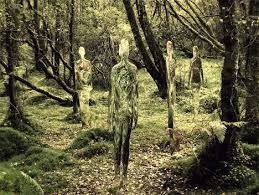
It Can’t Happen Here: Is That True?
We are in the midst of a turbulent wave of psychosocial unrest. As I “inquire deeply” about what wants and needs to be said, what stands out for me most strongly is our sociocultural divide. I chose the title phrase “the dysfunctional American psyche” because I believe that the problems that are afflicting us as a society are ultimately psychosocial in nature. If we want to adequately address solutions, we need to see clearly that societal problems have deep roots in what happens in families broken apart by poverty, mental illness, domestic violence, alcoholism and drug addiction.
The fact that harsh, abusive home environments create harsh, abusive adults should surprise no one. Such environments breed fear and hatred and problems with management of anger. This may manifest in a myriad of antisocial ways which involve acting out against others. It may be expressed, on the one hand, in rebellion against authority and attendant lawlessness; on the other hand, it may find an outlet in “socially acceptable” forms such as police brutality.
The prevalence of such problems in our culture are, I believe, one of the root causes behind the eruption of the violence in our culture which has been escalating for some years, perhaps most notably in the growing frequency of mass shootings. It is seen in sexual assault, in hate crimes, and in domestic terrorism. It lives under the skin as conscious and unconscious racism.
Bullying, in other words, begins at home.
Dynamics around aggression and power also underlie authoritarian personality and find a natural home in fascist ideologies. In that regard, I am struck by the otherwise puzzling tenacity of Trump’s popularity with his base. Like the story “The Emperor’s New Clothes”, Trump seems to have an uncanny ability to maintain himself inside a bubble in which a significant number of people are willing to overlook his provocations (his bombastic grandiosity, self-righteousness, and blatant lies.). Clearly there is something in the Trump “brand” that garners not only mass support, but strikes an obvious chord– if not becoming an actual cult of personality– with the brutal, the angry and the terminally embittered. Those of us old enough to remember Mussolini and Hitler will also recognize that this has happened before.
In order to be safe from authoritarian rule, we need to understand what it is in human nature that allows bullies to thrive among us.
Both Trumpism and the polarization and animosity that beset the body politic seem well explained by the psychoanalytic idea of SPLITTING: a psychological defense which divides the world (and the self) into black and white, good and bad. Splitting and its sister defense, projection, allow us to tolerate difficult and overwhelming emotions by seeing people as either all good or all bad, idealized or devalued, and locating what we don’t like in the Other. While splitting and projection are not in of themselves pathological, these so-called “primitive defenses” are most likely to occur in those who operate at a low level of psychological functioning. We resort to these kinds of defense when our psyches are flooded or overwhelmed by energies we cannot manage — a desperate effort to resolve difficult feelings.
These are desperate times, and our sociopolitical and cultural divide can be understood as splitting at the level of our collective psyche. The widespread occurrence of splitting seems further evidence of the poor mental health of our nation, also seen in skyrocketing rates of anxiety, depression and suicide, alcoholism and drug addiction. Splitting into us vs. them is one of the basic mechanisms by which we attempt to keep ourselves safe, seeking shelter in the tribe of us and locating problems in them. It is one among several factors that maintain racial and economic inequalities. Unfortunately, such polarization compounds the problems and foments the spread of violence and hate.
While there is no simple solution to the polarizing splits we face as a nation (or as human beings) this is a time when each of us needs to inquire deeply about the predicament of it all. While contemplative practice is not a substitute for engaged action, I find the theme of splitting to be a valuable focus in awareness practice. Among the many questions of interest, each of us needs to ask ourselves how we are complicit in maintaining the splits which put so many members of our human family at a grave disadvantage.
Finally, each of us needs to investigate and take steps to address our own “inner bully”, the persistent inner critic that judges and demeans both self and other. The key to this inner work is to find a way to acknowledge both sides of the split without blaming or shaming either ourselves or others. We cannot resolve splitting without recognizing that the apartness we feel from ourselves (or others) is none other than our inability to fully be ourselves in the face of this problem.
In the words of the immortal Pogo by cartoonist Walt Kelly in 1972, we have met the enemy, and they are us.
Subscribe to INQUIRING DEEPLY NEWSLETTER here: